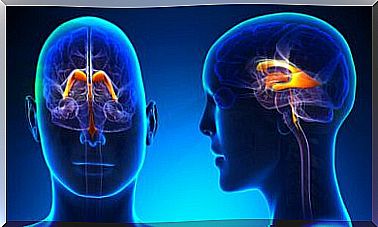What Makes Us Trust Others?

If we look at the number of people who have a hard time trusting others, we can easily see that trust comes with risks. It means giving up security, taking the risk that the other will betray us from a position where he can do us great harm.
So what makes us trust others? What prompts us to take this leap of faith?
In this dimension, we find very important individual differences. Some people trust faster, compared to others who need time and a long list of tests to gain that same trust.
There are those who, in the first place, always expect the best from others, compared to those who expect, almost by default, to be betrayed. But is it just a question of personality?
What makes us trust others?

Our nature
Humans are social beings, so we need social interactions. Establishing meaningful relationships with others is beneficial to our health; it is one of our basic needs. Socialization is rewarding and positively influences our self-esteem and well-being.
So, when it comes to strengthening bonds and leaving room for intimacy, trust in the other is an essential ingredient. It would not be possible to maintain ties of any kind with others without a minimum of trust. Thus, our social nature is one of our primary motivations.
Our previous learnings
On the other hand, trusting others is, to a large extent, a learned skill. It is conditioned by our experiences of the first months of life, according to the links established with others around us. The first bonds of attachment therefore play an essential role.
If these connections met our needs adequately and consistently, they created in us a basis of trust in the world. On the contrary, if they were unpredictable and inconsistent, it is likely that we have difficulty trusting others.
Finally, all of our subsequent life experiences will have helped to reaffirm or shape this early tendency. Our experiences in all the important relationships we have help increase or undermine our ability to trust.
The weather
Time is undoubtedly one of the factors that most influences the trust we place in others. When we have just met a person, we cannot fully trust them because we do not yet know their values and attitudes.
Over time, we will learn more about his values, behaviors and attitudes. On this basis, we will or will not increase our degree of confidence in it.
It even applies to relationships without any emotional component. Imagine, for example, that we are new to work. It makes sense that, initially, our colleagues don’t trust us until we have demonstrated our capabilities. It is only after that that greater responsibilities will be assigned to us.
Also, generally speaking, the people we trust the most are those with whom we have shared a long history. They demonstrated a stability in their behavior and attitudes, which favored the continuity of the relationship.
The reputation
Finally, always remember that our actions say a lot about us. Thus, a person’s reputation will be essential when deciding whether we trust them or not. When we are dealing with someone we do not know, their reputation predisposes us to be more or less careful.
Over time, those previous events that we knew about each other will lose value in relation to the quality of the experiences we have shared with them. Trust is earned through actions : it is the behavior of the other that will make us consider them as worthy or not of our own.

Adjust our predisposition to trust others
Ultimately, trust is about whoever grants it and whoever receives it. Undoubtedly, most of us need to know the other more or less, in order to trust them. But there are many people who fail to form a strong bond because of past betrayals.
If this is your case and you are feeling unwell, you can always count on a specialist to help you assess the situation. Your assessment and your intervention plan will help you find an exchange dynamic that promotes intimacy and makes you feel better.









